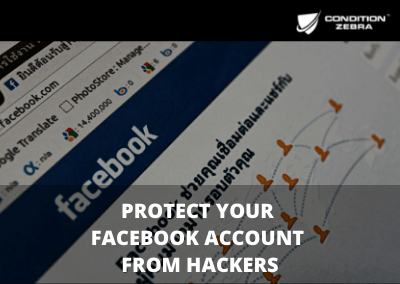Introduction
This article is an attempt to provide awareness of the incident, 500 million Facebook user’s data being leaked online.
Facebook’s growth over the past decade has seen billions of users active on its platform. Users provide personal data on Facebook as part of their profile information. Users have their name, address, mobile numbers, date of birth, relationship details, and marriage anniversary date on their profile. Some users even store their social security numbers and credit card details on the platform.
In the initial days, hackers were not interested in Facebook accounts. This social media platform was no place to hack, according to hackers. But soon, hackers realized that Facebook contains enough data that could be used to blackmail for monetary gains. Hackers could even post embarrassing content that was detrimental to a user’s image.
The hacking of Facebook
Recent news about more than 500 million Facebook user’s data being leaked online caused major outrage. Though this data was initially leaked in 2019 and Facebook had taken corrective security measures, the same data was posted again on an online hacker’s forum. According to cybercrime experts, data contained email addresses and phone numbers, and they were all leaked free. Even though Facebook said that it was old news, the leaked data appeared to be current. For example, the phone numbers leaked still belonged to the Facebook users presently.
The 533 million Facebook data contained nearly 32 million American user accounts and 20 million French accounts. According to cyber experts, malicious actors take undue advantage of personal data and use them for phishing, scamming, marketing, and hacking into other digital accounts of users. Facebook has nearly 2 billion users, and it was not the first time the data was leaked or used controversially.
In 2016, Facebook was involved in another controversy when a British Consulting firm Cambridge Analytica used its data for political ads. This had also then cast doubt on Facebook’s handling of the private information of users.
Risks involved with stolen personal data
One needs to protect their Facebook account from attackers. Hackers who have stolen personal data can use them to send a malicious text or try to take over some phone numbers using sim swapping techniques.
With crucial data such as emails, phone numbers, Date of Birth, users are highly vulnerable to cybersecurity threats that many people fall for. The result is always monetary loss.
How to protect one personal information from hackers?
- Don’t save passwords on public devices.
Many people save passwords in public devices such as cyber cafes by typing “Yes” on a box reserved for passwords. This is done in a hurry while browsing. The risk is that password remains there, and anyone can log into one account easily.
- Always logout
Always log out after a session; otherwise, Facebook will continue with the session even if the user is a different person. This can happen on public devices. Ensure that the email address and password or mobile number are not displayed on authentication tabs.
- Two-way verification option
Always opt for this option. This method sends an authentication message on the phone every time a hacker tries to log in to your account. Cybersecurity third-party service providers can provide software that ensures double protection. Though it is inconvenient to get a unique authentication code every time one login, it is better to be safe than sorry.
- Clean Browser
It is advisable to clean one’s browser once in a while. It is seen that phishing activities are usually found in torrents and other adult sites. Clearing the data history will protect from hackers gaining access to authentication details. One can also take help from service providers to provide adware tools to protect the user’s device.
- Protection against malware and spyware
Hacking is not always web-based. Sometimes unknowingly, we download malicious software that hackers use to hack the browser. Avoiding ad pop-ups that can be potentially malware can be done by installing tools for removing the malware.
Conclusion
At Condition Zebra, we understand the inherent risks faced by enterprises in an unpredictable environment. We provide business-specific digital forensics, penetration testing, managed detection and response, and system hardening solutions. Our solutions are designed to deliver precise and targeted solutions for a host of cybersecurity and risk management solutions.
Click here to learn more about our services
Get trained by Condition Zebra’s Cybersecurity Experts
We’re offering specialized training, in Network Penetration Testing and Web Application Penetration Testing. Both of this training program is high value because there is a practical session as well, so far we have 6200+ IT Professionals from various background who have attended the training.

